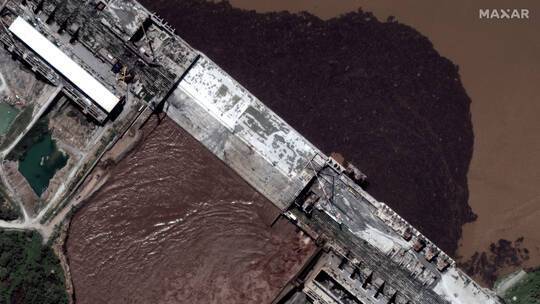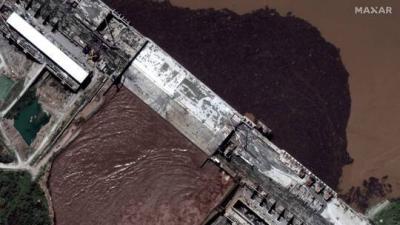Alaa Al-Zawahiri, a member of the Egyptian negotiating delegation regarding the Grand Ethiopian Renaissance Dam (GERD), stated today, Wednesday, that the second filling of the Ethiopian dam will have immediate and direct effects on Sudan. According to the newspaper "Al-Shorouk," Al-Zawahiri made these remarks during a phone call to the program "Under My Responsibility," aired on the Egyptian channel "Sada El Balad." He explained that the impact of the second filling on Sudan will be immediate, noting that it will prevent water flow during a specific period, and that Sudan is taking water maneuvering measures to avoid drought or a decrease in water levels.
Al-Zawahiri mentioned that Ethiopia recently notified Egypt of its intention to fill approximately 6.6 billion cubic meters in July and 6.7 billion cubic meters in August. He pointed out that it is difficult for Ethiopia to achieve that volume of water storage, highlighting their efforts to increase the height of the dam’s middle section to maximize water storage.
He emphasized that Ethiopia has made a series of unconventional engineering decisions in building the middle section of the dam, despite the potential risks involved, particularly with their ongoing aim to store as much water as possible.
Regarding the impact of the second filling on Egypt, Al-Zawahiri clarified that it would be indirect and that ordinary citizens would not feel it next year. He indicated that the effects would manifest as a reduced capacity of the High Dam to withstand drought due to decreased water supply, adding that the impact would be cumulative over the years.
In the same context, Ethiopia called on Wednesday for the upstream Nile Basin countries to form what it described as a front against Egyptian and Sudanese actions regarding the GERD project, just hours before a scheduled UN Security Council meeting on Thursday, which Egypt and Sudan requested to protest Ethiopia's implementation of the second filling of the dam.




